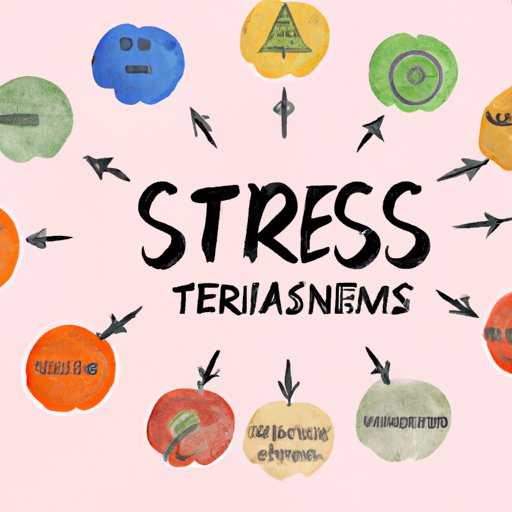
Introduction
Stress is a common experience for many people in today’s fast-paced society. It can cause a range of physical and emotional symptoms, from headaches and fatigue to anxiety and depression. However, there are many ways to reduce stress and promote relaxation in your daily life. In this article, we will explore some effective techniques for decreasing stress and improving overall well-being.
Meditation and Mindfulness
Meditation and mindfulness have been practiced for centuries as ways to promote inner peace and calmness. Research shows that these practices can help reduce stress, lower blood pressure, and improve mood. To get started, find a quiet place where you can sit comfortably and focus on your breath. Try to clear your mind of thoughts and distractions, and simply observe your breath as it goes in and out. If your mind begins to wander, gently bring it back to your breath. With regular practice, you can cultivate a more peaceful and centered mindset.
Exercise and Physical Activity
Physical exercise is another effective way to reduce stress and tension in the body. Exercise releases endorphins, which can improve mood and relieve pain. Some types of exercise that can be particularly beneficial for stress reduction include yoga, running, and strength training. Even a simple walk around the block can help clear your mind and improve your mood. Aim for at least 30 minutes of physical activity each day to promote relaxation and overall well-being.
Sleep Hygiene
Good sleep hygiene is essential for managing stress and promoting relaxation. To improve sleep quality, try to establish a regular sleep routine and create a relaxing sleep environment. This might include dimming the lights, turning off electronic devices, and using comfortable bedding. Avoid caffeine and alcohol before bedtime, and try to go to bed and wake up at the same time each day. Creating a calming bedtime routine, such as taking a warm bath or practicing meditation, can also help promote restful sleep.
Diet and Nutrition
What you eat can also impact your stress levels. Eating a diet rich in whole, nutrient-dense foods can help regulate mood and promote relaxation. Avoiding processed foods, sugar, and caffeine can also help reduce stress. Some examples of stress-reducing foods include leafy greens, nuts, and fatty fish. In addition, practicing mindful eating can help you identify physical hunger cues and avoid emotional or stress-related eating habits.
Breathing Techniques
The way you breathe can directly impact your stress levels. By practicing different breathing techniques, you can regulate your breath and promote relaxation. One effective technique is deep breathing, where you inhale deeply through your nose and exhale slowly through your mouth. Diaphragmatic breathing, which involves breathing from your diaphragm rather than your chest, can also be effective. Alternate nostril breathing can help regulate the body’s energy flow and promote relaxation.
Time Management
Effective time management can also help reduce stress levels. By prioritizing tasks and setting realistic goals, you can manage your workload more efficiently and reduce feelings of overwhelm or procrastination. Tools and strategies such as lists, calendars, and time-blocking can be helpful in managing time and increasing productivity. Remember to take breaks throughout the day to rest and recharge, and practice self-care regularly.
Conclusion
Reducing stress is an essential part of overall health and wellness. By incorporating these tips and techniques – such as meditation, exercise, sleep hygiene, diet, breathing, and time management – into your daily routine, you can promote inner peace and calmness. Remember to be patient with yourself as you develop new habits, and seek support from loved ones or professionals if needed. With time and practice, you can achieve a happier, more relaxed life.




